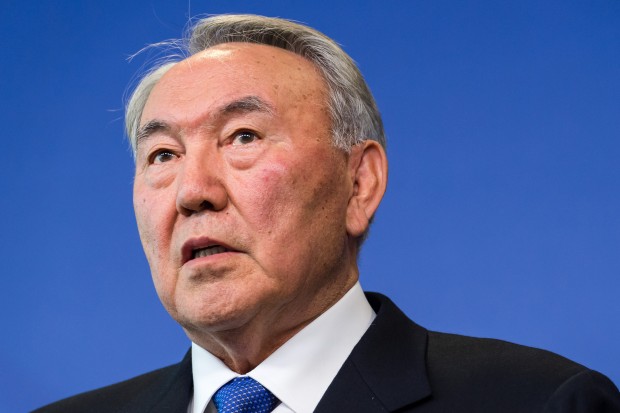How Kazakhstan’s diplomacy can help North Korea’s denuclearization
Eugene Lee – The Korea Times
On 28-31 of August in Astana, Kazakhstan one unique, if not historic, event has taken a place. Kazakhstan celebrated its 25th anniversary of denuclearization. With a big number of dignitaries and government officials from all over the world gathered in a very symbolically named building, the Palace of Independence, President of Kazakhstan Narsultan Nazarbayev spoke loudly against one worrying trend going against the values of the event ― pervasiveness of nuclear arm saround the world. His worries reflect the reality of nuclear arms pervasiveness in politics and lack of political will between powers to address the issue.
The pinnacle of such tendency is a brewing conflict on the Korean Peninsula, that is worsening after the recent North Korea’s successful SLBM submarine test which in return caused the current debate on THAAD (Theater High Altitude Area Defense missile system) deployment in South Korea to move towards a discourse on arms diversification through acquisition of nuclear submarines of various classes to counter ever increasing North Korea’s nuclear threat. The squall of the events in past decade begins to affect not only for the two sides, North Korea and South Korea, but the region itself, if not further. The current stance is causing economic distancing and furthers alienation between China, South Korea and Japan. These developments go to a such extent that some analysts see the situation as regional arms race.
It is here I would like to turn our attention to Kazakhstan with its current unique position. Kazakhstan has been able to sustain a healthy economic growth in the face of economic difficulties, but most importantly being squeezed between two superpowers, preserve its sovereignty. How Kazakhstan managed to do it so far? It is all thanks to the country’s skillful diplomacy and promotion of values of peace and denuclearization in its foreign policy. Rich with national resources and growing industrial base, Kazakhstan, located in the center of Eurasia, is at the crossroad of vital trade and transportation routes. As a part of it population, Kazakhstan also has a very large group of ethnic Koreans, who also have their historic roots in North Korea. Plus, with its term in the Security Council early next year, Kazakhstan is facing a choice how to multiply mentioned benefits.
In my opinion, Kazakhstan must activate its diplomacy. Despite the fact of earned international respect and legitimacy, Kazakhstan needs to take its diplomacy a notch higher. Creation of special teams, consisting of specialists and influential public figures, paired with various forms of diplomacy, such as mediation, parliamentary, a “shuttle” diplomacy paired with powerful informational illumination of the work, Kazakhstan, will be able to change many things. Breaking the mold of North Korea’s thinking, for which the focal point of its discontent is the US policy, through various independent engagements would be a first step. There are other countries out of the region North Korea maintains relations with, for example Qatar, that are willing to, or can be persuaded, to start such engagement. Changing the tone of rhetoric, and eventually behavior is not easy, but possible task.
The problem of contemporary debate about nuclear arm is first of all in thinking, which is often transfixed on immediate threat or creation of such threat for your adversary. Kazakhstan has taken rights steps in denouncing nuclear arms, but turning them into a taboo and turning the denuclearization into an international norm, is a much higher, nobler, but much more difficult to achieve, goal. Deeply imbedded and promoted systemically in institutions, these norms and practices should be our goal. In other words, peace and good relations do not belong to one specific region, they are a common good with benefits for all.
And here I would like to add another word in regards to the current debate on security in South Korea. As it has stiffened in the face of constant North Korea’s provocations and threats, the freedom of thinking about it has also shrunk greatly. And it is understandable. But, as the national security discourse is being shaped by “hawks” and military, the options for the conflict resolution have also dwindled to just few, drastic ones. Sometimes it even may seem that all achievements of previous policies, including the “Sunshine” policy, have gone to nothing, if not against South Korea’s interests. I see the fault is in the approach at the core. Instead of focusing on greater values, concepts and convictions, policies focusing on immediate results are bound to go in vain. A broader encompassing intellectual approach to peace without nuclear arms can do exactly that. South Korea needs to promote good international norms, including denuclearization for all, not only remain cycled on power.
Here, it would be also the right place to encourage South Korea’s diplomacy to take a much broader conceptual approach. There are many great diplomats and political figures in South Korea, but only few have left great legacy. Great institutions, like Kim Dae Jung’s Peace Center and alike, can become a platform for that. It isn’t easy, of course, to overcome your political attachments, but if it is the nation and its future is at stake, maybe it is the time to do so. Parallel your efforts with other countries, like Kazakhstan, and the results will come not a minute too late.
























































